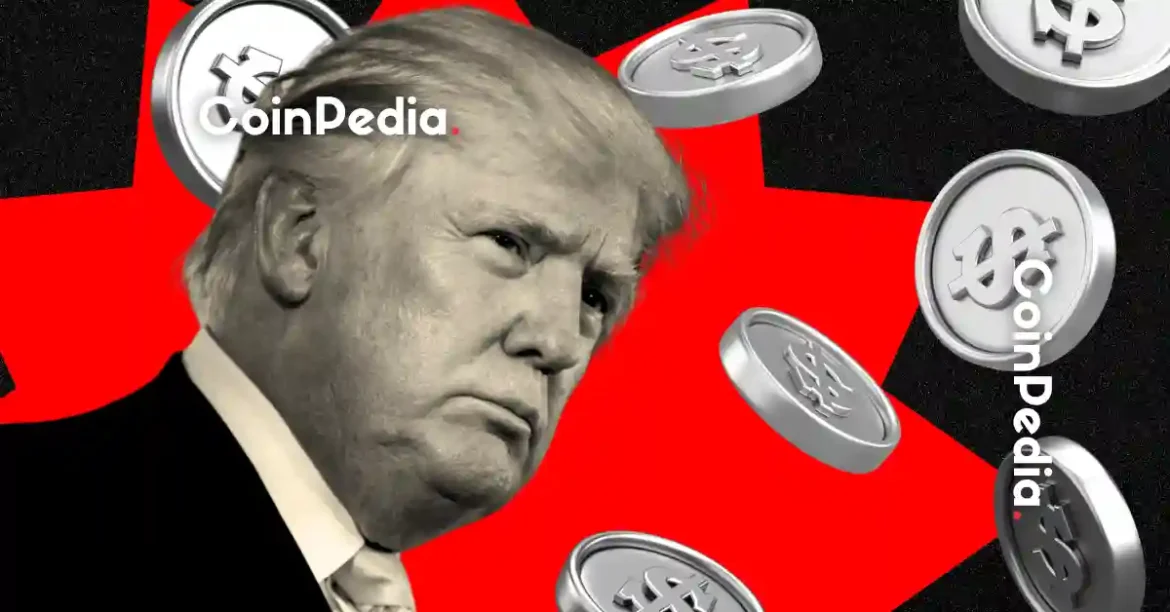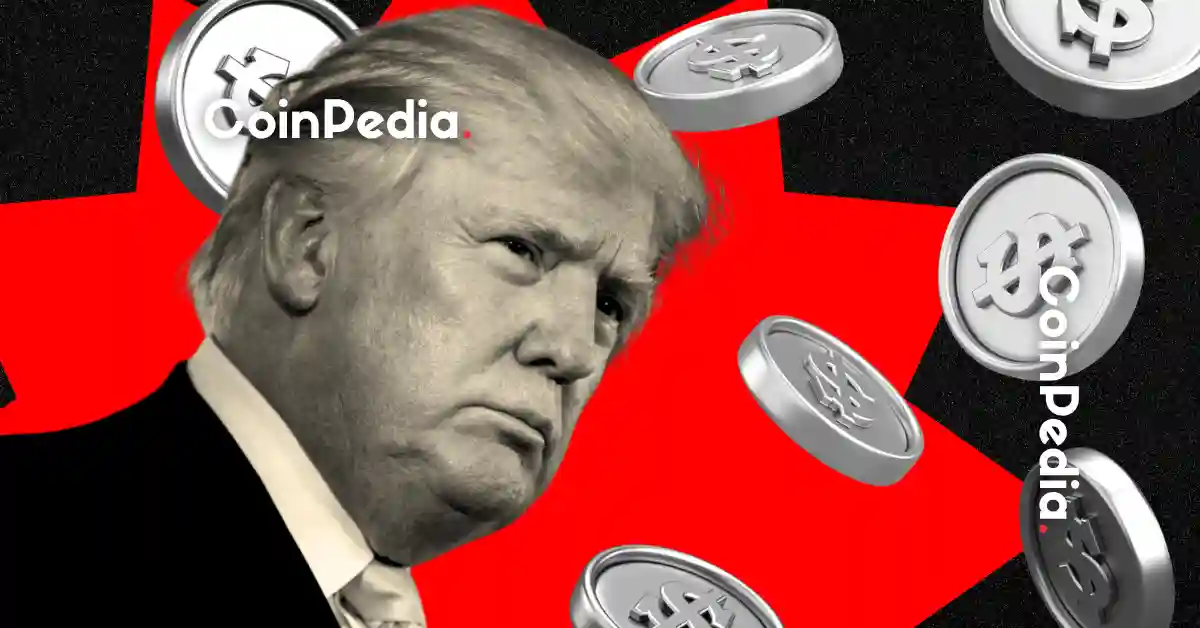In 2025, the cryptocurrency market is a dynamic and unpredictable landscape, characterized by both unprecedented growth and significant volatility. This environment has given rise to a striking paradox: while over 26,000 new Bitcoin millionaires are created, former President Donald Trump’s crypto portfolio reportedly suffers a dramatic decline. This juxtaposition underscores the complex interplay between politics, personal finance, and digital assets, raising critical questions about the future of cryptocurrency and its role in the broader economy.
The first half of 2025 witnessed a remarkable surge in Bitcoin adoption and price, driven by a confluence of factors. Institutional investors, once skeptical of cryptocurrencies, began to embrace Bitcoin as a legitimate asset class. BlackRock, one of the world’s largest asset managers, increased its crypto holdings by $23.9 billion, signaling a growing confidence in the long-term potential of digital assets. This institutional influx, combined with renewed retail investment and positive market sentiment, propelled Bitcoin’s price to new heights. As a result, over 26,000 new Bitcoin millionaires were minted, a testament to the transformative power of cryptocurrency and its ability to generate wealth rapidly.
The rise of these new Bitcoin millionaires reflects a broader shift in the perception of cryptocurrency. Bitcoin, once dismissed as a speculative bubble, is increasingly seen as a hedge against inflation and a decentralized alternative to traditional finance. This narrative resonates with a growing segment of the population, particularly those disillusioned with the current financial system. The creation of these new millionaires also highlights the democratizing potential of cryptocurrency, as it allows individuals from diverse backgrounds to participate in the global economy and accumulate wealth.
In stark contrast to this burgeoning market, reports indicate that President Trump’s personal crypto portfolio experienced a significant decline, plummeting by over 78% in just six months. This raises several intriguing questions: What specific cryptocurrencies did Trump hold? What factors contributed to this substantial loss? And what are the potential implications for Trump’s political and financial future?
Several factors may have contributed to the decline in Trump’s crypto portfolio. Firstly, the cryptocurrency market is notoriously volatile, with prices susceptible to sudden and unpredictable swings. If Trump’s portfolio was heavily concentrated in altcoins or meme coins with limited utility or long-term potential, it would have been particularly vulnerable to market corrections. Secondly, negative news or regulatory developments could have impacted the value of the cryptocurrencies Trump held. For example, increased regulatory scrutiny or negative media coverage could have triggered sell-offs, leading to price declines.
Furthermore, the performance of Trump’s portfolio may be linked to his political activities and public statements. His endorsements or criticisms of specific cryptocurrencies could have influenced market sentiment, leading to either positive or negative price movements. Given the strong reactions Trump elicits, it’s probable that his very public persona affected prices, even unintentionally. The emergence of “Trump-themed” meme coins, while potentially lucrative in the short term, also carries significant risk. These assets are often driven by hype and speculation, and their value can evaporate quickly if sentiment turns sour.
The intersection of Trump’s political career and his involvement in the cryptocurrency market has raised concerns about potential conflicts of interest and corruption. Critics argue that Trump’s promotion of certain cryptocurrencies could be seen as an attempt to profit from his position of influence, potentially misleading investors and distorting the market. Senator Merkley went so far as to call Trump’s crypto schemes the “Mount Everest of corruption,” highlighting the gravity of these concerns.
These allegations of corruption have significant political implications for Trump. They could fuel investigations, damage his reputation, and undermine his credibility with voters. Moreover, they raise broader questions about the ethical responsibilities of public figures in the digital age and the need for greater transparency and regulation in the cryptocurrency market. The fact that Trump and his sons are actively engaged in various crypto endeavors only serves to heighten these concerns, creating more avenues for potential conflicts of interest.
Another controversial aspect of Trump’s involvement in the cryptocurrency market is his association with meme coins, particularly those bearing his name or likeness. While these coins have the potential to generate substantial profits, they are also highly speculative and susceptible to manipulation. Reports indicate that a small number of crypto wallets have made millions of dollars trading Trump-themed meme coins, while the vast majority of holders have lost money. This raises concerns about the potential for insider trading and market manipulation.
The success of these meme coins often hinges on the hype and attention they receive on social media, which can be easily manufactured or amplified through coordinated campaigns. This makes it difficult for ordinary investors to distinguish between genuine opportunities and pump-and-dump schemes. The fact that Trump has publicly embraced these coins, even indirectly, lends them a degree of legitimacy that they might not otherwise possess, potentially encouraging unsophisticated investors to gamble their savings on highly risky assets.
The impact of Trump’s policies on the broader cryptocurrency market is a complex and multifaceted issue. Some argue that his pro-business stance and emphasis on deregulation could create a favorable environment for the growth of the crypto industry. Others worry that his protectionist trade policies and unpredictable decision-making could destabilize the global economy, negatively impacting the value of cryptocurrencies.
Reports indicate that Trump’s return to the White House in 2025 led to a significant decline in the number of Bitcoin millionaires, with some estimates suggesting that over 34,000 addresses lost their millionaire status in the first quarter of the year. This decline has been attributed to uncertainty surrounding Trump’s economic policies, which triggered a sell-off in the crypto market. However, other reports suggest that Trump’s re-election also generated a substantial increase in the number of new Bitcoin millionaires, indicating a more nuanced and complex relationship between his policies and the cryptocurrency market.
Some believe that his focus on economic reform and regulatory changes, while initially disruptive, could ultimately lead to a more stable and sustainable crypto ecosystem. The long-term implications of Trump’s policies on the cryptocurrency market remain uncertain, but one thing is clear: the intersection of politics and cryptocurrency will continue to be a source of both opportunity and risk in the years to come.
The narrative surrounding Trump and Bitcoin in 2025 is a complex and often contradictory one. While thousands of new Bitcoin millionaires were created during this period, Trump’s own crypto portfolio appears to have suffered significant losses. This dichotomy highlights the inherent risks and volatility of the cryptocurrency market, as well as the potential for conflicts of interest and market manipulation when public figures become involved.
As cryptocurrencies become increasingly integrated into the global financial system, it is essential to address the ethical and regulatory challenges they pose. Clear guidelines are needed to prevent conflicts of interest, protect investors from fraud, and ensure that the cryptocurrency market operates fairly and transparently. The Trump case serves as a stark reminder of the potential for abuse and the need for vigilance in this rapidly evolving landscape. The long-term implications are as uncertain as the crypto market itself, but one thing is clear: the intersection of politics and cryptocurrency will continue to be a source of both opportunity and risk in the years to come.





